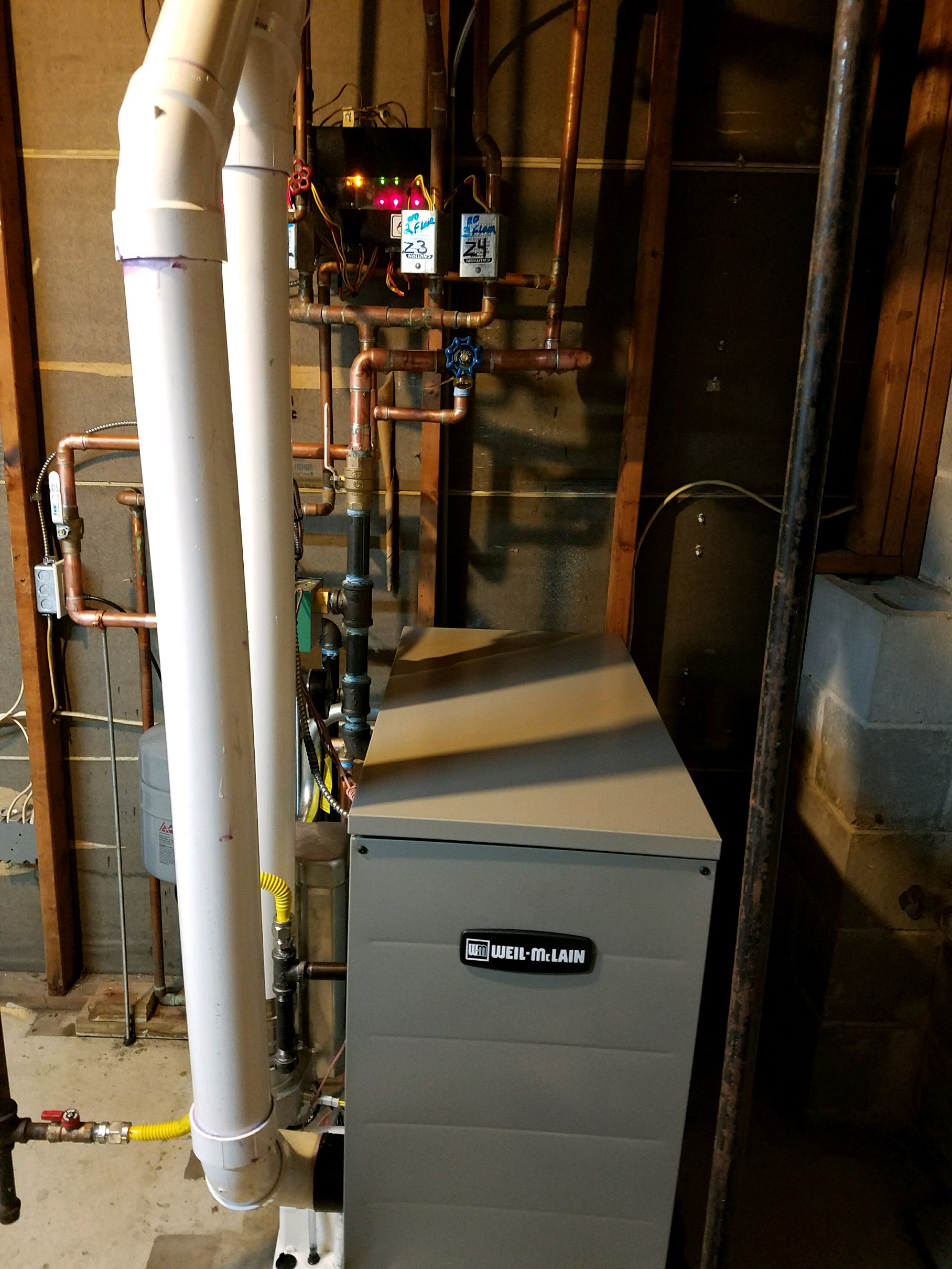What Size Boiler Do I Need For My NJ Home?
November 11, 2024

If you’re in the market for a new boiler, you may have learned that boilers are sized according to their BTU (British Thermal Unit) output.
The higher the BTU output of the boiler, the “bigger” the boiler (i.e. the more heat the system can produce).
Now you’re wondering what size boiler you should get for your home.
Unfortunately, without having a technician visit your home and perform a load calculation, we can’t give you an accurate answer as to what size boiler you need.
In this blog, we’ll explain:
- What a load calculation is, and why it’s important
- Why the right size boiler matters
Want a NJ professional to size your new boiler? Our expert technicians have the training and tools needed to provide accurate sizing recommendations.
What a load calculation is, and why it’s important
A load calculation is essentially a mathematical equation that tells a technician how many BTUs are needed to heat your home sufficiently.
The calculation takes into account several factors specific to your home, including:
- The square footage of your home
- The insulation levels of your home
- How many doors and windows are in your home
- How much direct sunlight hits your home
- The number of floors or levels in your home
- And more
Each of the factors above directly affects how much heat enters or escapes from your home, which ultimately determines how many BTUs a boiler will need to produce in order to properly heat your home.
Because the calculation analyzes so much data, reputable HVAC professionals use special software to help them accurately perform a load calculation.
Beware of “rule-of-thumb” sizing estimates
Instead of taking the time to perform a load calculation, some less-reputable HVAC professionals quickly recommend a boiler size by only considering the square footage of your home.
However, this square footage sizing estimate only takes into account one factor of a load calculation. Using this kind of “rule-of-thumb” sizing estimate is like shopping for a pair of pants and only looking at the size of the waist, but not the length of the leg or the style of the pants. If you only look at the size of the waist, you run the risk of getting pants that don’t fit properly.
Similarly, using a general rule-of-thumb estimate puts you at risk of getting a boiler that’s too big or too small, which leads to problems down the road (more on that below).
Our recommendation is to only work with an HVAC contractor who performs a proper load calculation to determine what size boiler you need. That way, all sizing factors will be considered before you purchase a boiler.
Why the right size boiler matters
What happens if you get a boiler that’s too big or too small for your home?
If you get a boiler that’s incorrectly sized, you’ll run into issues such as:
- Reduced comfort: An oversized boiler will heat your home really quickly then shut off, which could result in uneven indoor temperatures.
- Higher utility bills: An undersized boiler will have to run longer to heat your home to your desired temperature, which increases energy usage and raises utility bills.
- Frequent repairs: An oversized boiler may cycle on and off quickly, which wears out important components and can lead to a system breakdown.
To avoid these issues, it’s important to have a professional correctly size your boiler via a load calculation.
Want a NJ professional to size your new boiler?
Our heating experts can accurately size your new boiler and help you choose a system that matches your family’s heating needs and budget.
For more information about what to expect when you hire Air Experts, visit our boiler installation service page.
